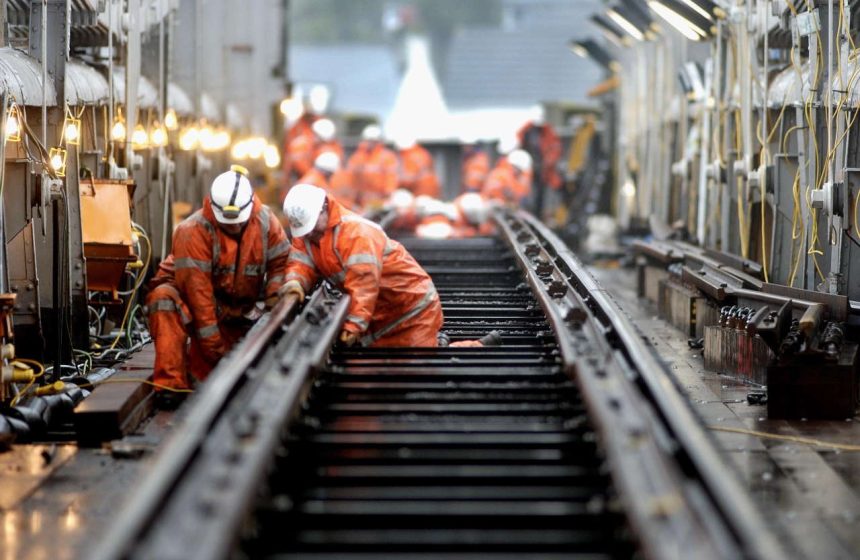On Thursday, 28th July, Network Rail started the legal consultation process with its trades unions to discuss its proposed changes to working practices required to modernise and improve productivity and efficiency across the rail industry.
The proposed reforms are aimed at improving safety for both employees and passengers, boosting train service performance, and saving money. These changes will enable the railway to run more efficiently and put the industry on a firm financial footing for the future.
Throughout its talks with the unions, Network Rail has been clear that it wants to give its employees a fair pay rise, but it has to be affordable. The most recent offer was for 8% over two years, with heavily discounted travel, a cash bonus, and a guarantee of no compulsory redundancies.
These met many of the RMT's demands and, crucially, was affordable from within Network Rail's own budgets, whereas the alternative is to ask either taxpayers or passengers to fund a pay increase, which is neither fair nor realistic.
Although the proposed reforms would likely lead to a smaller maintenance workforce from around 10,000 to around 8,000, there are not expected to be any compulsory redundancies. The proposed changes can be made through voluntary severance, retraining, and redeployment.
In simple terms, the proposed reforms to our maintenance organisation will deliver:
- quicker fault fixes using multi-disciplined response teams and greater use of ‘smart meter' technology flagging issues to controls rooms before key equipment failure;
- individual rostering by sending the right number or people to fix a fault rather than fixed sized teams;
- multifunctional teams with mixed skills within a team so that a team of mixed specialists can be sent in one van to fix a fault rather than two specialist teams in two vans;
- multi-skilling by investing in the knowledge and skills of people so they are better equipped to fix the most common faults themselves;
- accelerated and improved technology deployment so that a range of labour and life-saving technology that has been stuck in ‘trade union consultation' for over two years can be rolled out.
Andrew Haines, Network Rail chief executive, said: “The way people live and work has changed since the pandemic. On the railway, that means significantly fewer commuters and significantly less income. This year we'll see a shortfall of around £2bn compared with 2019.
“It would be wrong to fund this deficit through increases in fares or taxes when we know that some of our working practices are fundamentally broken. That's why we must make progress with modernising the way we carry out maintenance work and making the savings that are necessary for the future of our railway.
“We haven't given up on finding a negotiated way forward. We have made a good pay offer and our door remains open, but we can't continue to circle the same ground day after day, week after week and not move forward. These reforms are too important, especially given we started these conversations 18 months ago. It is vital that we progress our modernisation plans to help put our railway on a sustainable financial footing for the future.”
Responding to Network Rail's latest statement, RMT general secretary Mick Lynch said: “Network Rail has issued a statement to staff today that there is an unconditional pay offer available. This is a deception on the staff and is entirely untrue. The offer they have made is entirely conditional on mass redundancies and changes to conditions and working practices that are not yet worked through and are subject to discussions with the trade unions.
“In tandem to this deception on pay the company have started a formal consultation on 1900 redundancies, have withdrawn their offer of no compulsory redundancies and will impose detrimental working practices across the maintenance network.
“Rather than deceiving the staff about what they are actually proposing, the company now needs to get back round the table with RMT and work to resolve the issues in the dispute including their proposals for change and the union's demands for job security and a decent pay rise.”

Also there has been speculation about more further strikes happening not just at the end of July and throughout August. But also more rail strikes could happen throughout September-October and winter 2022 (November-December).